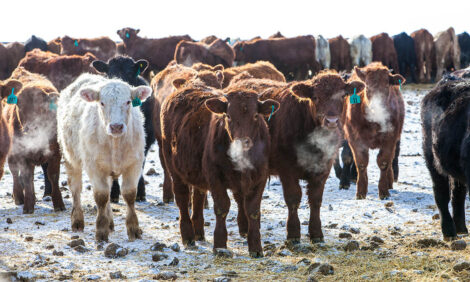



Zimbabwe Cattle Producers in a Spin
ZIMBABWE - Zimbabwean cattle farmers have more worries than just the foot and mouth outbreak scare that has seen South Africa and Botswana raise their eyebrows, reports Tawanda Korombo.In Zimbabwe, a former big exporter of beef to the European Union (EU), cattle farmers are also wary of drought conditions, lack of a ready market and lack of government support structures for producers.
The beef industry in Zimbabwe has been declining, worsened by the collapse of the Cold Storage Commission, a government parastatal that provided support and a ready market for cattle farmers.
Shrinking government coffers have meant increasingly little allocation towards revival of the cattle herd, leaving the country heavily reliant on rural farmers and some imports as the commercial beef production sector has tumbled, players in the sector said.
Matabeleland cattle population decreasing
The prime cattle growing region of Matabeleland, which lies in the southern parts of the country is battling dry weather conditions. Figures from the Veterinary department in Matabeleland South shows that there are about 636,000 cattle remaining in the region.
Even these are also facing the risk of significantly reducing because of the foot and mouth disease as well as drought conditions that have destroyed pastures and grazing land.
“Livestock in this region, particularly cattle, has been affected by drought conditions and worsened by foot and mouth.
"The region’s cattle numbers are likely to go down further and we have also seen the quality of most of the beef coming from this area go down because conditions are just not conducive at the moment,” said an Agriculture Ministry official.
Paddy Zhanda, the deputy minister of agriculture said this week that movement of cattle in the Matabeleland region has been restricted. There are mounting fears that the spread of foot and mouth could cross over to neighbouring South Africa and Botswana if it remains uncontrolled.
“We have then created a buffer zone where we want to restrict the movement of the outbreak into new areas,” Mr Zhanda was quoted saying by Reuters.
Foot and mouth causes export fears
Continued spread of the foot and mouth disease into South Africa will have dire consequences for Africa’s second largest economy’s beef export status into the EU, which it regained last year after an outbreak of the disease in 2011.
“The South African livestock industry cannot afford another setback at present. FMD is a transboundary disease that requires cooperation and collaboration between and among neighbouring countries,” said the South African Department of Agriculture, Forestry and Fisheries.
It added that Zimbabwe, Botswana and South Africa are working together to contain this outbreak and prevent its spill over into South Africa and Botswana. So far, about 70,000 doses have been delivered across the Matabeleland regions of Zimbabwe to curb spread of the disease.
But the foot and mouth disease and drought conditions are only a few of the problems beef producers in Zimbabwe are facing. Experts said the Zimbabwe cattle farming sector requires producer syndicates that can help set-up “certified standardised abattoirs” and co-brand products.
According to the Farmers in Action Group in Zimbabwe, this “can ensure satisfied and predictable local markets” and help “open up channels for export”.
The demise of the CSC has added upon the woes cattle farmers in Zimbabwe are facing. The government has also not been supporting the sector, according to farmers in the cattle producing sector.
“CSC was an idle support framework that offered a ready market and support structures, ranging from organising cattle auctions. Right now we have problems in pushing our cattle onto the market and there are too many middleman between abattoirs and farmers," said James Nzonge, a cattle farmer in Zimbabwe’s Mashonaland East province.
There are indications that the CSC is negotiating for a $90 million investment with unnamed foreign investors. However, experts have urged the government to privatise the CSC to enable it to run on commercial lines which would help sustain its viability and functionality.
"We are saying if partners must come in, they should invest in the production of cattle. We used to run the cattle finance scheme and it should be revived,” said Ngoni Chinogara, chief executive officer of the CSC during a tour of one of the company’s nationwide depots.

Tawanda Karombo
Freelance Writer, ThePoultrysite.com


